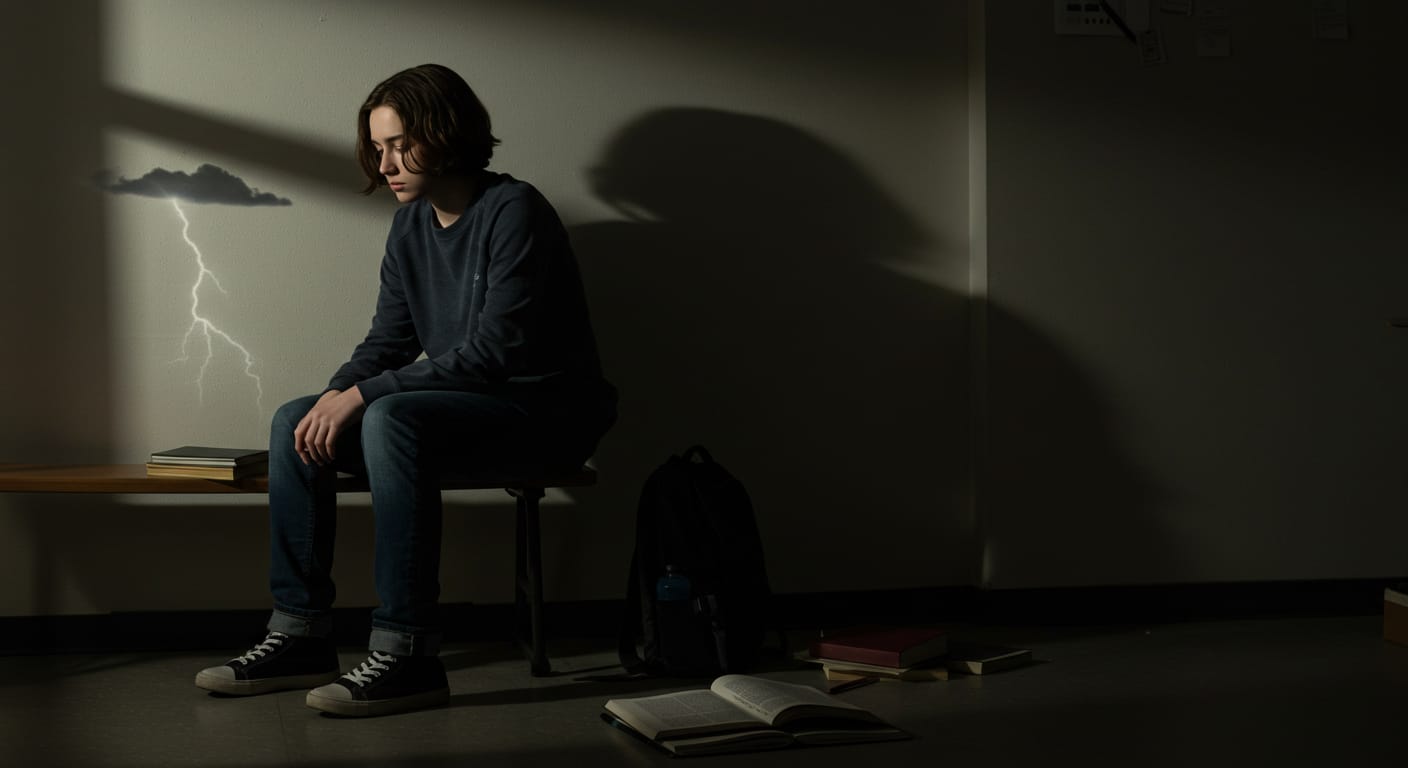Depression | Teen Mental Health Awareness
Many people still struggle to believe that children and teenagers can experience real depression. “What do they have to be sad about? They don’t pay bills!” But here’s the truth: depression doesn’t care about age. It doesn’t discriminate based on how many candles are on your birthday cake—and it never waits for adulthood to strike.
“What you must understand about me is that I’m a deeply unhappy person.”
—John Green
Depression Has No Age Limit
Contrary to common belief, youth mental health is just as serious—and in some cases, even more alarming—than adult depression. In a 2017 U.S. study, 13.3% of adolescents aged 12–17 experienced a major depressive episode, compared to 7.1% of adults. Among adults, about 63.8% had severe impairment and 65% received treatment. But among adolescents, 70.77% had severe impairment, yet only 41.9% received treatment.
That gap is not just alarming—it’s dangerous.
Why Is Teen Depression Often Ignored?
Far too many parents, teachers, and even professionals dismiss depressive symptoms in youth. Comments like “It’s just a phase” or “They’ll grow out of it” are not only unhelpful, they are harmful.
Let’s be clear:
Major Depressive Disorder is a diagnosable mental illness. It’s not a mood swing or a character flaw.
It affects how you think, feel, sleep, eat, connect, and live. And yes, it affects children and teens, too.
Depression Looks Different at Every Age
Not every teen who is struggling will look “sad.” Some may be class clowns, athletes, or even top achievers—yet still be hurting inside. Depression is not always visible. It often presents as:
-
Sudden weight gain/loss
-
Insomnia or excessive sleeping
-
Emotional outbursts or crying spells
-
Withdrawal from friends and hobbies
-
Self-harm or risky behaviors
-
Obsession with death or suicidal thoughts
You might think it’s a phase. It might be mood swings. But if these symptoms last more than two weeks, take them seriously.
The Consequences of Ignoring Depression
Let’s not sugarcoat this:
Left untreated, depression can lead to dangerous consequences, including suicidal thoughts or attempts. Hospitalization may become necessary if a teen’s safety is at risk. Parents often feel shocked and overwhelmed when it reaches this point—but many warning signs were there, quietly building up.
How to Provide the Right Support
The good news? Support makes a powerful difference. Teens who feel heard, loved, and understood are far more likely to seek help—and far less likely to spiral into crisis.
Here’s how you can support a young person facing depression:
-
Listen without judgment
-
Don’t dismiss their emotions or minimize their struggles
-
Watch for subtle mood shifts or behavior changes
-
Take daily walks with them or encourage physical activity
-
Be open to changing therapists if one isn’t a good fit
-
Talk about mental health the same way you talk about physical health
Let them know: they are not broken, they are not weak—and they are not alone.
💡 Final Thought
Depression doesn’t ask for ID.
It can show up at any age, from childhood through adulthood. What matters is that we take it seriously, no matter who’s experiencing it.
If your teen is struggling, don’t wait. Early intervention can save lives.
Love, support, and professional care can make all the difference. Together, we can silence the stigma—and amplify healing.


